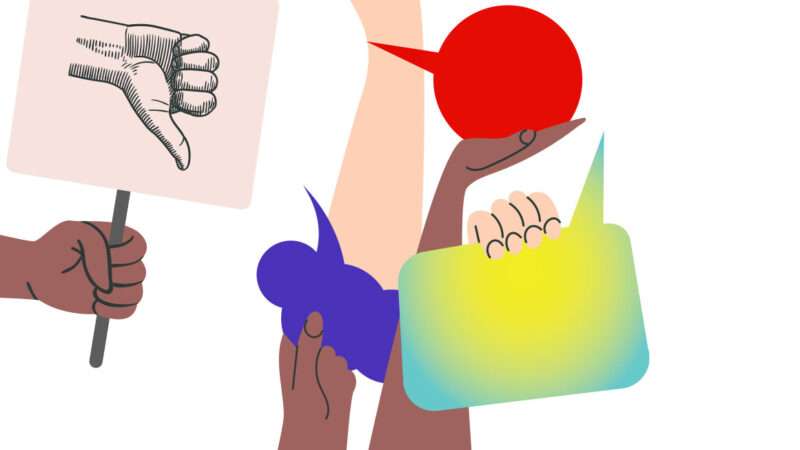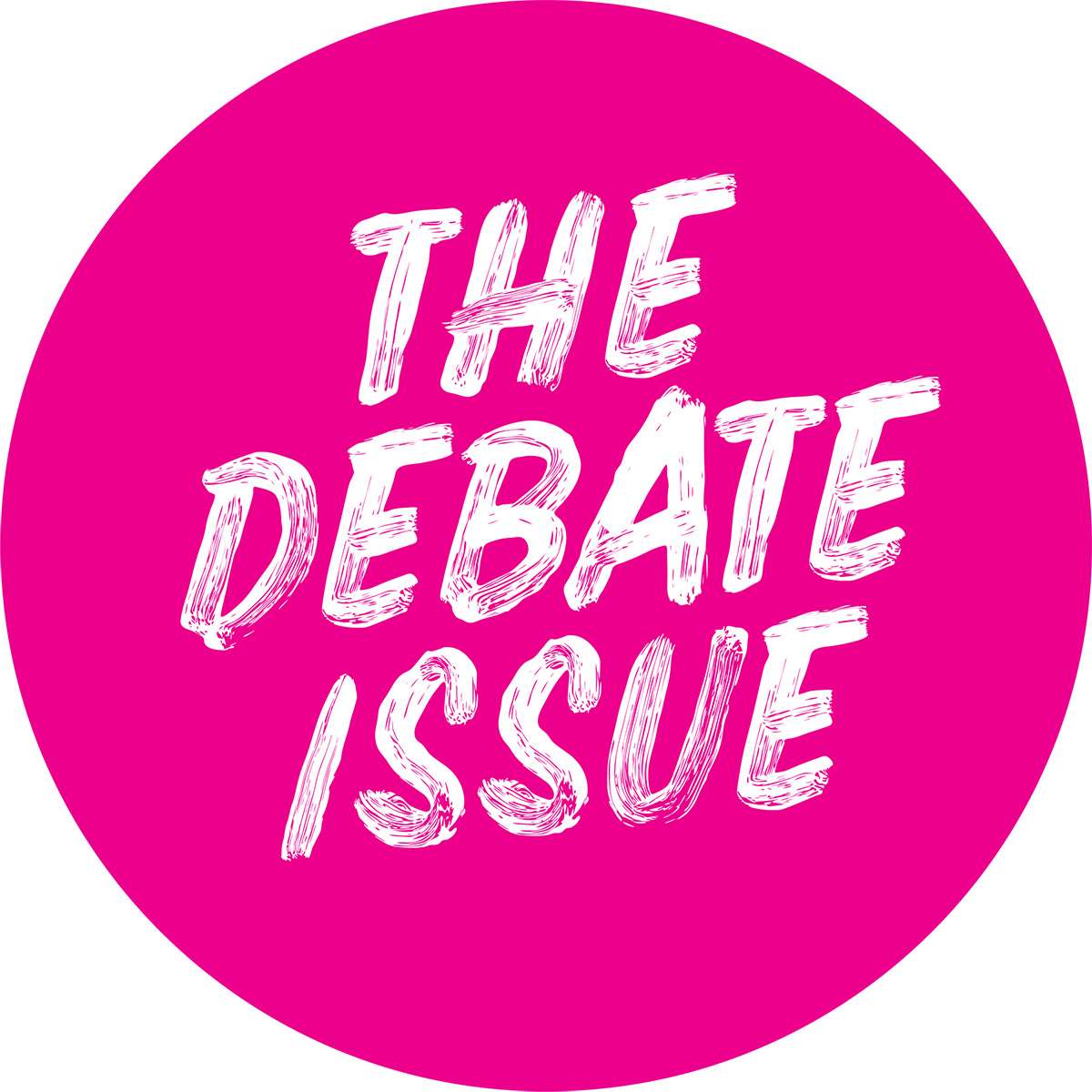
When We Are Governed, Ballots Are Best
Affirmative: Jesse Walker

There are countless drawbacks to democratic government, but most of these are problems with the government part, not the democratic part. It is true, as the old joke goes, that unconstrained majority rule is two wolves and a sheep debating what to have for dinner. But unconstrained minority rule is just the same debate with more sheep. The lesson should be that we need constraints on any state, democratic or not.
Constitutional constraints on power are often described as countermajoritarian measures, but the best of them are counterminoritarian too. (The same First Amendment that is there to protect us if Congress passes a law criminalizing speech is also supposed to protect us if an unelected police chief starts harassing his critics.) Democratic input itself can be a constraint on power—not the most effective constraint, but one we're better off with than without. I prefer it when government does not claim powers over people's lives; but when it does claim those powers, we should at least get some say in when and how they are wielded.
One possible objection to this is that democracy doesn't really give us much power: Outside the most local level, it is virtually impossible for one voter's ballot to change an election's outcome. This is undeniably true, and I would never try to hector a citizen into the voting booth. But when a large number of citizens get upset at once, that actually can have an impact. Keeping one person from voting is not likely to have a long-term impact on public policy, but systematically barring a population from the polls—as in the Jim Crow South, to give the most obvious example—can allow all sorts of oppressions to thrive.
Another objection is that voters can back bad policies as easily as they can back good ones, as when majorities embrace financially irresponsible measures because they send more money to their pocketbooks. Again, this is undeniably true. But are less democratic systems any better? In his 2004 book For the Many or the Few, the University of Southern California economist John Matsusaka found that ballot initiatives—those direct-democracy routes around the legislature—tend to be associated with reductions, not increases, in spending. The European economists Lars Feld and Gebhard Kirchgässner have found that the cantons of Switzerland, another hotbed of direct democracy, are similarly prone to spending less. And there is no strong evidence that town-meeting governments are more profligate than less democratic municipal structures.
Matsusaka also noted that ballot initiatives tend to be associated with reductions in taxes and with shifts from funding services via taxation to funding them via user fees. And of course, initiatives and referendums have allowed citizens to adopt all sorts of anti-statist measures that legislators were too scared to touch, such as the legalization of recreational marijuana. Within the legislature, meanwhile, libertarian-friendly reform bills have tended to fare better in the more democratic House than in the Senate.
The most intrusive segment of the federal government—the executive branch—contains just two elected officials. Vast swaths of it are shielded from any genuine democratic oversight. In the domestic administrative state, a permanent bureaucracy has been given wide latitude to issue its own rules and to operate its own courts. In the national security agencies, the situation is even worse: A culture of secrecy sometimes conceals even budgets from the public eye, let alone the behavior (and misbehavior) that those budgets are funding. Greater democratic control would not fix the underlying problem here, but it would at least be a potential tool for reining in the abuses. Surely it would be preferable to the status quo.
It may be easy to imagine some idealized elite that would make decisions more wisely than the mass of ill-informed voters, but it's harder to come up with a foolproof system to establish who is intellectually qualified to join it. (What tool would you use? A literacy test?) And no matter who makes it into that ruling class, it would be just as prone to self-dealing and to interest-group capture as any other system. Undemocratic processes will periodically produce relatively liberty-friendly leaders—a John Cowperthwaite in colonial Hong Kong, a Hans-Adam II in Liechtenstein—but Cowperthwaite is not the typical appointee, and Hans-Adam is not the typical prince. And even those two came to power in tiny polities where it was easier than usual to vote with your feet.
So I'll muster a cheer for democracy. It is best not to be governed. But when we are, we're better off with ballots.
Democracy Doesn't Protect the Individual From the Majority
Negative: Jason Brennan
Compared to dictatorship, one-party states, and oligarchy, democracy is pretty good for freedom. But that's a bit like saying Karen is the nicest of the Plastics in Mean Girls.
People often describe democracies as free countries and other forms of government as unfree. There are two different, though compatible, reasons why.
As a matter of fact, democracies tend to be more liberal than nondemocracies. Despite being a critic of democracy, I've published papers making this point myself. Various think tanks and research centers (such as the Fraser Institute, Economist Intelligence Unit, or Freedom House) produce annual indexes which rate how democratic countries are, how much they respect the rule of law, how much they respect economic liberty, and how much they respect civil liberties (such as freedom of speech). As a matter of fact, there is a very strong and persistent positive correlation between how democratic a country is and how much it respects civil liberty. The effect size is large. There is also a strong and persistent positive correlation between how democratic a country is and how much it respects economic liberty, though here the effect size is much smaller. As countries become less democratic, they tend to become less free.
Still, we should be cautious: Extreme democracy does not predict extreme liberalism. Highly democratic countries tend to be freer than nondemocracies, but that does not mean they are liberal utopias. Democratic countries regularly suppress citizens' civil rights. They restrict foreign immigration and freedom of movement. Most imposed draconian lockdowns during the pandemic on the basis of flimsy evidence. None respect economic freedom the way libertarians desire.
There seems to be an intimate connection between democracy and freedom, but among researchers the connection is disputed. Some argue that the background conditions which tend to cause liberal politics also tend to produce democratic political structures. Some argue there is causation: Perhaps liberalism causes democracy, democracy causes liberalism, or they are mutually reinforcing. As of now, we don't really know.
A second reason people claim that democracies are free is that they hold that democratic politics itself is an important kind of freedom, that democracy is essential to freedom, or that the rights to vote, run for office, and participate are themselves constitutive of what it means to be free. These common views do not survive scrutiny.
Back in October 2020, the fast casual restaurant chain Nando's did a public relations stunt encouraging people to vote. Customers could choose their own meal or instead select an "unDemocratic Meal." If they selected the unDemocratic Meal, managers would feed them a comical and disgusting mishmash, such as brownies on rice.
Funnily enough, Nando's other option was a meal where each customer chose for themselves. That's not democracy; that's a market. Imagine Nando's offered a real democratic meal instead: You tell the manager what you want, but then you get whatever the majority wants, regardless of whether you want it. Since you have some input, that's perhaps better and freer than the UnDemocratic Meal, but it's not much to celebrate.
When working as intended, democracies give each citizen an equal fundamental share of decision-making power. This is less like equal slices of cake and more like equal crumbs. On the most optimistic estimates in the economics literature, the probability an individual voter will affect the outcome of a major election is, in special cases, somewhere on the order of one in 3 million.
Imagine you were deciding what to eat, whether and with whom to have sex, how to dress, whether and what to worship, where to work, or what rules would govern your life. Imagine we gave you a one in 3 million chance of making these decisions for yourself, along with a 2,999,999 chance that others will decide for you. We wouldn't call this a situation in which you consent to the outcome, exercise autonomy, live only by rules you set for yourself, or govern yourself. We wouldn't call it freedom.
Indeed, that's the very point of democracy. Democracy is not supposed to be a system in which we as individuals decide for ourselves. It's a system which disempowers individuals in favor of the majority—or the biggest minority. Even members of that very majority are powerless. It's better to have a vote than not, but an individual vote protects you from the caprice of the majority no more than a bucket protects you from a tsunami.
Subscribers have access to Reason's whole May 2023 issue now. These debates and the rest of the issue will be released throughout the month for everyone else. Consider subscribing today!
- Debate: It's Time for a National Divorce
- Debate: Artificial Intelligence Should Be Regulated
- Debate: Democracy Is the Worst Form of Government Except for All the Others
- Debate: To Preserve Individual Liberty, Government Must Affirmatively Intervene in the Culture War
- Debate: The E.U. Was a Mistake
- Debate: The U.S. Should Increase Funding for the Defense of Ukraine
- Debate: Mentally Ill Homeless People Must Be Locked Up for Public Safety
- Debate: Despite the Welfare State, the U.S. Should Open Its Borders
- Debate: Cats Are More Libertarian Than Dogs
- Debate: Make Housing Affordable by Abolishing Growth Boundaries, Not Ending Density Restrictions
- Debate: Bitcoin Is the Future of Free Exchange
- Debate: Be Optimistic About the World
The post Debate: Democracy Is the Worst Form of Government Except for All the Others appeared first on Reason.com.







